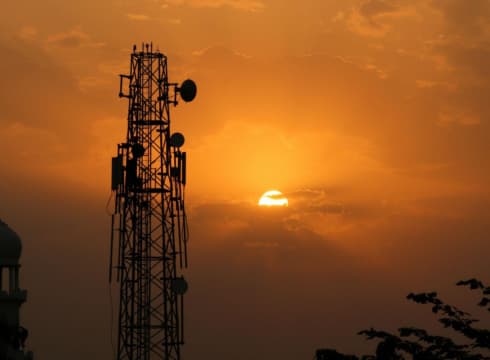We unequivocally repudiate and emphatically condemn any spurious conjectures that perpetuate the circulation of such misleading information, said TRAI
Another major takeaway of the paper was that TRAI has sought feedback on moving the country towards a 13-digit mobile numbering regime for M2M devices
On June 6, Telecom Regulatory Authority of India (TRAI) floated a consultation paper on “Revision of National Numbering”
Inc42 Daily Brief
Stay Ahead With Daily News & Analysis on India’s Tech & Startup Economy
On June 6, the Telecom Regulatory Authority of India (TRAI) floated a consultation paper on “Revision of National Numbering “. The paper quickly ran into controversies as media reports said that the telecom body had sought feedback on whether charges could be levied on mobile numbers (colloquially referred to as telecom identifiers (TI)).
“Whether charges should be introduced for existing and newly allocated TI resources to ensure their efficient utilisation? If yes, what should be the charging mechanism and applicable charges? Please provide detailed justification along with supportive documents, if any…,” noted the paper.
Questions were raised as the paper came in the backdrop of the Telecommunications Act, 2023, passed last year, which permitted charges to be levied on numbers.
As criticism grew, TRAI issued a clarification on June 14 denouncing reports that said that it was mulling imposing charges on customers for holding multiple SIM cards and numbering resources.
“… The speculation that TRAI intends to impose charges on customers for holding multiple SIMs/numbering resources is unequivocally false. Such claims are unfounded and serve only to mislead the public,” added the telecom regulator.
Citing its rationale, the telecom regulator said that the paper was issued with the aim to assess factors impacting the allocation and utilisation of TI resources, adding that it plans to propose amendments to refine allocation policies and utilization procedures to ensure sufficient reserve of TI resources for present and future requirements.
“TRAI has consistently been advocative of minimum regulatory intervention promoting forbearance and the self-regulation of market forces. We unequivocally repudiate and emphatically condemn any spurious conjectures that perpetuate the circulation of such misleading information concerning the consultation paper at hand,” added the official statement.
What is also interesting is that TRAI asked the general public whether a “financial disincentive” ought to be imposed on telcos for retaining “X% or more of the allocated TIs remaining as unutilised beyond a certain timeframe?”
Another major takeaway of the report was that TRAI sought responses on whether any TI resource shortages were anticipated in the near future for fixed line services. It asked for detailed responses on whether there was a need to revise the existing criteria for allocation of additional TI resources for fixed line services.
13-Digit Mobile Numbers On The Anvil?
Another major takeaway of the paper was that TRAI has sought feedback on moving the country towards a 13-digit mobile numbering regime.
Citing its May 2020 recommendations, TRAI, in the paper, said, “All the SIM based M2M connections using 10-digit mobile numbering series should be shifted to the 13-digit numbering series allocated by DoT for M2M communication; at the earliest”.
It is pertinent to note that the department currently allocates 13-digit numbering series for SIM-based machine-to-machine (M2M) devices. For the uninitiated, these specialised SIM cards establish communication between devices especially in emerging areas such as Internet of Things (IoT).
Currently, these 13-digit numbers comprise a 2-digit M2M identifier, a 4-digit licence identifier, and 6-digit device number. At present, DoT has allotted five 3-digit M2M identifier codes namely 559, 575, 576, 579 and 597. So far, only ‘575’ is used as M2M identifier code.
Citing its rationale for introducing additional 3-digit identifier codes, TRAI said that the addition of each such code allow for the generation of 10 Bn mobile numbers.
As a result, the regulatory body posed the following question – “Are there any constraints envisaged in TI resources and its allocation for Machine-to-Machine (M2M) services? If yes, what changes should be incorporated to cater for its future requirements?”
Additionally, the TRAI has raised questions over the need to introduce an appropriate definition for ‘inactive connection’ for mobile services and the timeline post which “inactive” TIs can be reused.
That said, the regulator also proposed that it “may be prudent” to consider charging telcos a nominal fee for allocating TI resources. Noting that numbering resources were a public asset whose ownership lay with the government, TRAI said that many telecom operators were selling “vanity numbers” in auctions and levying charges from subscribers for preferred numbers.
“Some possible mechanisms for charging these resources are… imposing a one-time charge per number or per numbering resource block being allocated, imposing an annual recurring charge for each numbering resource allocated to the service provider including deactivated numbers of prior allocation but pending reuse (including others),” added the paper.
The latest consultation paper comes at a time when TRAI has ramped up its focus on improving telecom services in the country. Just last month, the regulator said that it was mulling stringent rules around the quality of 5G services in the countries as users encounter instances of call disruptions and interruptions in video streaming.
Prior to that, the regulatory body was said to be mulling plans to hold open house discussions to formulate a regulatory framework to oversee OTT communication services that are not covered under the ambit of the Telecom Act, 2023.
In May also, TRAI was also reportedly considering a directive to display coverage maps on the websites of telecom companies that would allow consumers to check 5G and 4G availability.
{{#name}}{{name}}{{/name}}{{^name}}-{{/name}}
{{#description}}{{description}}...{{/description}}{{^description}}-{{/description}}
Note: We at Inc42 take our ethics very seriously. More information about it can be found here.


